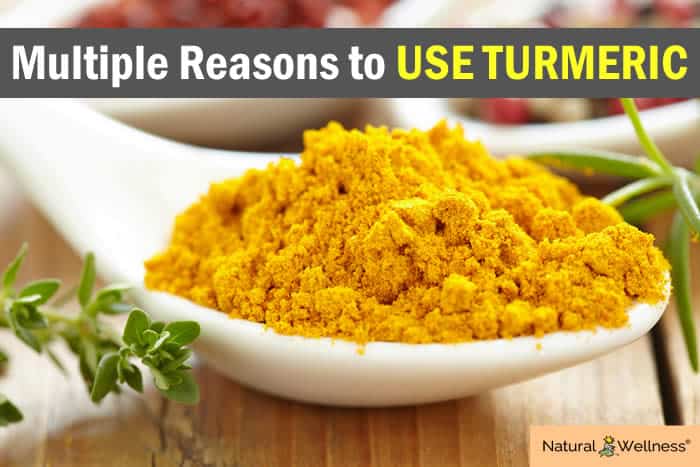

Known as “Indian saffron,” turmeric – the common name for curcuma longa – is the main ingredient in curry. It has a warm, spicy flavor and has been used extensively in Indian cooking. Curcumin, the compound that gives it its bright yellow color, also has many medicinal properties.
6 Reasons to Use Turmeric
-
- Anti-Inflammatory Properties – Turmeric is first and foremost an excellent anti-inflammatory agent. Its anti-inflammatory action has been shown to compare with hydrocortisone and other over-the-counter products. This is why it has been used in treating inflammation based diseases and conditions such as arthritis and fibromyalgia.
- Digestive Aid – Mostly because of its anti-inflammatory properties, turmeric is highly effective in relieving heartburn, stomach problems, diarrhea and gas. Because it can so easily be added to food and diet, turmeric can be used to keep symptoms of irritable bowel disease (IBS) and Crohn’s disease in check.
- Fights Cancer – Curcumin has been shown to kill cancer cells on contact in a lab. Curcumin has also demonstrated the ability to kill cancer cells and inhibit further cell proliferation, specifically in tumor cells, without damaging other cells in the body. And because turmeric can be added to the diet, it is especially beneficial in fighting colon cancer.
- Aids in Detoxification – Turmeric has long been used as treatment for jaundice, gallbladder and liver conditions. Turmeric has been shown to act as a cholagogue, stimulating bile production and encouraging the breakdown of fats while reducing inflammation.
- Lung Infections – Curcumin has been shown to offer protection from chronic lung conditions such as bronchitis and COPD, as well as allergic asthma. Curcumin offers reduction in the inflammation and oxidative effects these conditions have on lung tissue, and reduces the symptoms of these diseases.
- Skin Conditions – In addition to anti-inflammatory properties gained by adding turmeric to your diet, curcumin offers antioxidant properties that make a great addition to skincare products. Using turmeric as a scrub not only acts to reduce redness and inflammation, but reduces oil secretions by the sebaceous glands.
Turmeric is a spice that is easy to add into many of the foods you already prepare! Given the health benefits it offers, we can’t afford not to try turmeric as a cost effective way to increase the health benefits of a well-rounded diet.
Editor’s Note: Natural Wellness’ Turmeric 95 not only contains 750 mg of turmeric, standardized to 95% curcuminoids, but also provides 20x more turmeric into your bloodstream, making it the most potent turmeric available on the market today. Milk Thistle with Artichoke & Turmeric contains 50 mg of turmeric, standardized to 95% curcuminoids, to reduce inflammation and pain, detoxify and improve liver, bile and immune function.
Recommended Reading: Turmeric Eases Stress and Reduces Liver Fat





Any recipes for using turmeric. I bought some but can’t think of anything to do with it other than add it to curry or rice. I assume you have to eat quite a bit to see benefits?